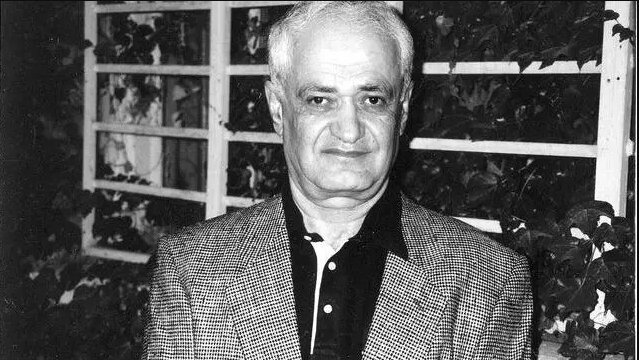TEHRAN – Iranian writer, translator and scholar of Persian literature, Hassan Kamshad passed away on Thursday at the age of 100.
Born in Isfahan, he received his bachelor’s degree in law from the University of Tehran. After completing his research in 1948, Kamshad was employed by an oil company and moved to an oil-rich region in southern Iran, Isna reported.
In 1954, filmmaker and literary figure Ebrahim Golestan arranged for Kamshad to begin teaching Persian at Cambridge University. Alongside education, he pursued studies and earned a Ph.D. Persian literature in Cambridge. After graduating, he continued to teach Persian at the same university and at the same university. He also served as a visiting professor at the University of California.
After his retirement and upon the recommendation of Iranian writer Sadek Chubak, who once worked for an oil company, Kamshad resumed his translation work. He had begun translating a few years before his retirement, when he was a young man working for an oil company. “When I transferred to Masjed Soleiman, I translated ‘Citizen Tom Payne’ (written by Howard First) and it was published,” he said.
The first book he took on was, in his own words, “Seriously,” “What is history?” By Eh Carr, published by Kharazmi Publishing House in the 1970s. Regarding choosing a book, he said: “I knew the author of the book. I attended his class in Cambridge.”
After translating a book that explored the philosophy of history, Camshad became interested in the history of philosophy and ultimately the philosophy itself. His first book in this field was a translation of “Sophie World” by Norwegian author Jostain Garder, published by Nirowfer Publishing in 1996. Like other countries, the book quickly became an Iranian bestseller.
The public’s enthusiasm for “Sophie’s World” comes from the fact that it is a philosophical novel, combining narrative and philosophical content to present the subject in simple language for a 15-year-old girl.
He then translated “Wittgenstein’s Poker” by David Edmonds and “The Story of Philosophy” by Brian Maggie.
In addition to the translation, Kamshad has published several original works. There he explored not only his own life, but the history of modern Persian prose. Most important of these is the founder of the book * in Modern Persian Prose *, a translation of his doctoral dissertation.
In this book he lists some of the earliest translations made during the Qajar era, mentioning some of them as “very fluent and beautiful,” including the translation of Abdollatif Tasuji’s “1000 and 1 Nights.” However, he generally believed that “the best translations of our own life were produced.”
In the field of literature, Kamshad considered Mohammad Gazi’s translations to be the best, and in the field of philosophy he considered Ezatra Hukadovund’s translations to be the best.
SS/SAB

